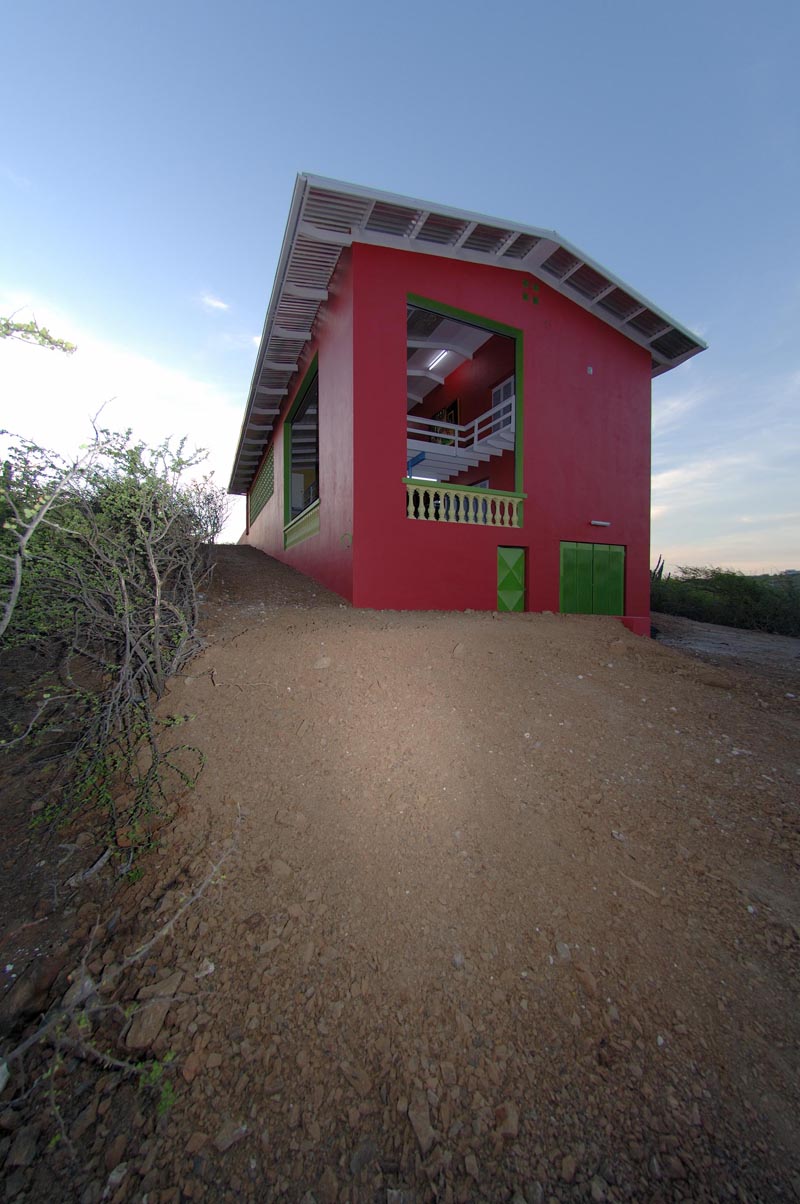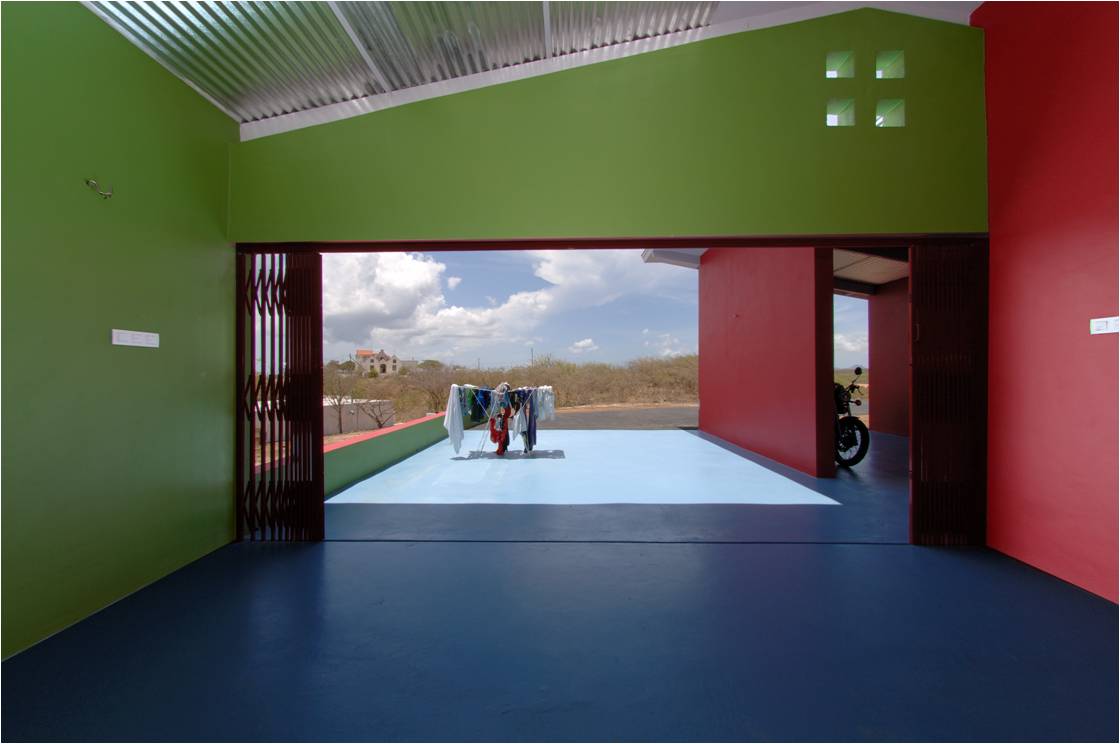C.A.S.Architects
Postbox 6008
Curaçao, Netherlands Antilles
Tel: 00 5999 869 88 51/ 699 06 96
sofias@onenet.an
carlosweeber@onenet.an
C.A.S.Architects deals with architecture, planning, research and development. Its commissions vary from climate oriented social housing to private houses in Curaçao, from the extension of a house in Tervuren, Belgium to the extension of an open air living-terrace in Willemstad, public buildings and infrastructure as a theater and the reorganization of a Caribbean beach, urban plans for inner city locations of Willemstad, a European first prize winning concept (Big Bang) for future hospitals and a proposal for a new icon for the Netherlands. On its way is a tool for the local population, to build houses in a climate oriented way.


Sofia Saavedra Bruno M.A. (1972) runs C.A.S.Architects with Carlos Weeber at Curacao. Graduated as a civil engineer and architect from the University of Ghent, Belgium (1995), She studied at the École d’ Architecture de Paris-La Villette/Institute de l’Amérique Latine (1995), and earned a Master’s degree from the Berlage Institute in Amsterdam (1996–1997). She worked on several architectural and urban projects in the Dutch architectural offices de Architekten Cie and One Architecture (1998-2003) as Bouwfonds MAB development in the Hague & Paris (2003-2005). She currently is Associate Professor Architecture & Civil Engineering at the University of Netherlands Antilles UNA, was a guest professor at the University of Delft, Academies of Amsterdam &Rotterdam and participated in various academic workshops in Latin America & the Caribbean. She published the book "Urbanism and Architecture in Chiquitos. Pragmatic translation of European Principles to the Jesuit missions in Latin America.(Santillana 2000). She is the president of the foundation Docomomo Curacao and a founding member of Supersudaca, a think tank dedicated to research in architecture and urbanism: www.supersudaca.org
Prof. Carlos Weeber M.A. BNA (1937) runs C.A.S.Architects with Sofia Saavedra Bruno at Curaçao. Graduated at the Technical University of Delft, School of Architecture were he taught from 1970 till 2003 in combination with architectural practices in Rotterdam (HTW) and Amsterdam (de Architekten Cie). He was president of the Dutch Association of Architects BNA. As a critique and founding member of cultural organizations as Stichting Hoogbouw and AIR, he participated in the architectural debate in Holland and abroad. The Dutch editor 010 published two books dedicated to his essays (Het Wilde Wonen and Het Versteende Tentenkamp) and to his architectural work (Carel Weeber a monography and Carel Weeber ex-architect). Among his numerous designs are the Dutch Pavilion in Osaka World Exhibition 1970, the housing complex Peperklip and the Schie prison in Rotterdam, metro stations in Spijkenisse, the Zwarte Madonna and Struyck student housing in The Hague, Queens towers at Amsterdam, the Dutch Embassy in Dakar (Senegal) and climate oriented houses in Curaçao.